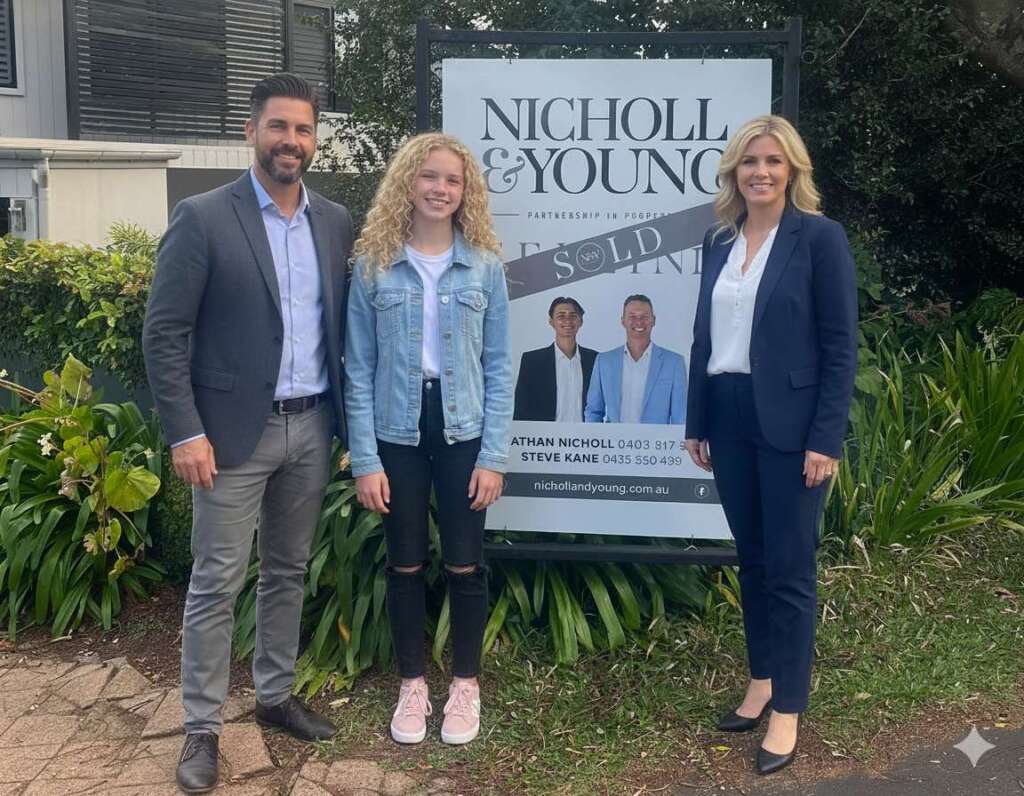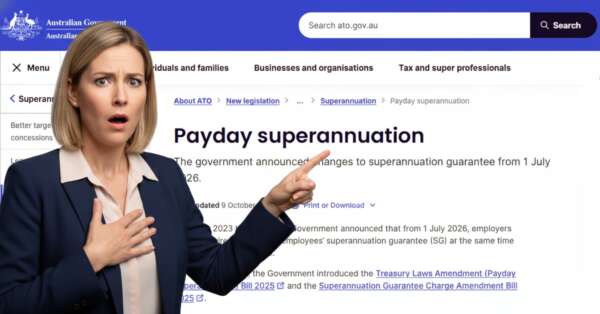Quick Summary:
The ATO has escalated enforcement of accurate tax returns for property investors by using AI and data-matching to identify an estimated $1.2+ billion tax gap from rental properties. Property investing ATO targets now focus on five critical areas: mixed loan interest claims, repair versus capital improvements, unreported income, joint ownership expense manipulation, and properties not genuinely available for rent. We explore these in important detailed under the FAQ’s below:
Frequently Asked Questions
Q.What triggers an ATO audit for property investors?
A. Algorithms flag inconsistencies between declared income/expenses and third-party data from banks, agents, and rental platforms. Common triggers include claiming 100% deductions while using property personally, income discrepancies with bond records, and loan increases without property improvements.
Q. How does the ATO detect underreported rental income?
A. They cross-reference your declarations with rental bond authorities, agents, banks, Airbnb, and tenant tax returns. Their data-matching program covers 2021-26, providing five years of financial behaviour patterns.
Q. Can I claim loan interest if I draw from an investment Line of Credit for personal use?
A. Only interest on the loan funds drawn out for strictly investment purposes remains deductible. If you redraw $50,000 from a $400,000 investment loan for personal use, you cannot claim interest on that $50,000. The ATO requires detailed records proving how funds were used.
Contact us here to get expert advice on managing these changes before they hit your cash flow.
Listen to our podcast summary and discussions of this blog post
Comprehesive Discussion on the ATO’s target areas for property investors ’25/26.
 Last month, a new client Sarah (not her real name, obviously) brought in a shoebox of receipts and on her face was that particular look of worry I’ve come to recognise. The ATO had sent her one of those comprehensive review letters. Perhaps you know the ones.
Last month, a new client Sarah (not her real name, obviously) brought in a shoebox of receipts and on her face was that particular look of worry I’ve come to recognise. The ATO had sent her one of those comprehensive review letters. Perhaps you know the ones.
What struck me about Sarah’s situation – is how she genuinely believed she was doing everything right. Her investment property was generating decent rental income, she was claiming what seemed like legitimate deductions, and she’d even bought some property investment software that promised to make tax time “effortless.”
The thing is, the ATO’s become remarkably sophisticated at compliance monitoring.
They’re sitting on data (2019-2020 financial year) that suggests property investors are collectively potentially underreporting about $1.26 billion in taxes (14% of $9 billion “net tax gap… for individuals not in business”). And they’re using artificial intelligence, cross-referencing everything from your rental bond lodgements to your Airbnb bookings, building comprehensive patterns that flag returns for review, faster than you can say “negative gearing.”
From what I can tell, property investing ATO targets have never been more precise or more systematic.

The surveillance machine that never sleeps
Here’s what’s particularly noteworthy about the current enforcement landscape – the ATO’s residential investment property loan data-matching program covers 2021-22 through to 2025-26, which means they’re analysing five full years of property investor financial data with unprecedented detail..
I always explain it to clients like this: imagine someone following you around with a clipboard, noting every rental payment you receive, every maintenance bill you pay, every week your property sits empty. That’s essentially what’s happening, except it’s automated and covers every property investor in Australia.
The system cross-references data from rental bond authorities, real estate agents, banks, and short-term rental platforms. It’s honestly quite comprehensive. When these algorithms detect inconsistencies – and they’re getting better at spotting them – your return gets flagged for human review.
That’s when things get expensive.
Five compliance mistakes that could trigger unwanted attention
1. Interest deduction disasters (the silent killer)
This one trips up experienced investors constantly, and to be fair, it can be a bit tricky to be properly diligent about!
The moment you redraw funds from your investment loan for personal use – whether it’s a family holiday, car purchase, or renovating your own home – only the interest on the investment portion remains deductible. Sounds straightforward, right? Actually, it’s genuinely complex in practice.
I had a client who redrew $50,000 for a kitchen renovation at their principal residence. They kept claiming interest on the full loan amount. The ATO’s data-matching identified when their loan balance increased without corresponding property improvements, and the resulting audit was quite thorough.
What I’ve learned is this: keep separate loans for personal and investment purposes, OR maintain meticulously separated records showing exactly how redrawn funds were used. The ATO expects mathematical precision here, so “I think it was mostly for the property” doesn’t meet their documentation standards.
2. The repair versus improvement minefield
Now this distinction catches even seasoned property investors, and frankly, the ATO guidance requires careful interpretation.
Replacing a broken window? That’s a repair – immediately deductible. Installing double-glazed windows throughout the entire property? That’s a Capital improvement – depreciable over 25-40 years. The usual lingo to describe these to outgoings is this. The first one is “expense” – you can “expense” this as an operating expense in your P&L, the second one is “captialised” – in other words, this is treated as a “capital expense” so it sits on your Balance Sheet, not on your P&L. The depreciation component though is added as an expense each financial year.
The line between these categories is where I see most compliance issues arise.
Here’s the reality: the ATO identifies patterns where investors consistently claim major renovations as immediate repairs. New kitchens, bathroom overhauls, deck installations – these are capital works. I know it’s frustrating to depreciate a $30,000 kitchen renovation over decades, but that’s how the tax legislation is structured.
Here’s the easiest way to think about it: If you’re significantly improving the property’s value or functionality, it’s probably capital. If you’re restoring it to its previous condition, it’s likely a repair expense.
3. Income reporting blind spots (they track more than you think)
You know what’s interesting? The ATO’s data-matching capabilities mean they often have visibility of your rental income through multiple sources.
They’re collecting information from short-term rental platforms like Airbnb, cross-referencing bank transactions, and matching property records with income declarations. I’ve seen cases where the ATO has identified undeclared income from sources investors didn’t even realise were being monitored.
One client assumed cash payments from tenants weren’t tracked by the tax system. However, when your tenant claims rental assistance or declares rent paid on their own tax return, that creates a verifiable trail, which can then be compared with your records as the landlord!
Basically, assume comprehensive tracking and declare accordingly.
4. Joint ownership expense juggling
The thing is, when you co-own a rental property, both income and expenses must be split according to your legal ownership percentage. This sounds logical until you realise how many investors attempt to optimise this system inappropriately.
I’ve seen couples try to allocate all the expenses to the higher-income earner while splitting rental income equally. The ATO’s algorithms identify these patterns quite efficiently. If you own 50% of a property, you can only claim 50 per cent of the expenses – and you must declare 50% of the income.
It’s honestly that straightforward, even though it might not be tax-optimal.
5. The “genuinely available for rent” puzzle
This requirement trips up holiday home owners more than any other compliance issue, and from what I can tell, the ATO’s becoming increasingly focused on enforcing it.
Your property must be genuinely available for rent to claim deductions. The ATO expects evidence of active marketing campaigns and competitive rental pricing. If you’re blocking out school holidays for family use, or you’re pricing your property above market rates, you’re likely to face scrutiny.
What I’ve noticed is that investors often assume good intentions are sufficient.
They’re not.
You need documented evidence that you were actively seeking tenants during claimed deduction periods.
Survival strategies (learnt through experience)
After over 20 years of dealing with ATO reviews, I tend to believe the best defence is meticulous documentation combined with conservative claiming.
Keep everything. Bank statements, maintenance receipts, communication with real estate agents, evidence of marketing campaigns. The ATO’s data-matching might identify discrepancies, but solid documentation usually resolves them without penalties.
Honestly, I’m still surprised by investors who think they can manage complex property tax obligations casually – such as collecting paper receipts throughout the year in an old show box – not the way to go! The ATO’s enforcement capabilities have evolved significantly, and the old “she’ll be right” approach carries genuine risks now.
You might even want tho think about using a popular accounting software like Xero specifically to track your property expenses and incomes – the small monthly cost likely will be tiny in comparison to an ATO audit!
What strikes me as most important is understanding that these sorts of property investing targets by the ATO aren’t random – they’re based on sophisticated pattern recognition that identifies potential non-compliance with increasing accuracy.
Getting professional help (before you need it)
The reality is, property investment taxation has become genuinely complex, and the consequences of getting it wrong have escalated significantly.
At KeyPoint, we’ve spent decades helping Gold Coast property investors navigate these compliance requirements while optimising their tax positions legally and safely. Whether you’re a real estate agent also building your own portfolio, a “Mum and dad” investor building a portfolio, or a construction industry professional expanding into property development, the tax implications can be substantial and require specialised expertise.
For our real estate industry clients, we understand the unique challenges of managing both your agency business and personal property investments – the ATO applies additional scrutiny to real estate professionals, given their market knowledge and access to opportunities.
Construction industry professionals face their own complexities, especially when property development overlaps with renovation and building activities. The distinction between business income and investment income can significantly impact your tax position.
As specialists in providing invidivualised and optimised taxation and structuring advice to these property-related industries, we encourage you to contact us now to make sure you’re doing the best you can to avoid expensive and time-consuming ATO attention.
Proactive compliance isn’t just about avoiding audits though – it’s about optimising your property investment strategy within current ATO enforcement priorities, and honestly, that’s become quite a specialised field in itself.
Stay ahead of ATO changes with professional guidance – contact us here to ensure your business is prepared for this new compliance environment.
This article provides general information only and shouldn’t be considered personal financial advice. The ATO interest tax deductibility rules in 2025 are complex and can affect different businesses differently. As a leading Gold Coast accounting Firm we strongly recommend you always get professional advice for your specific situation.












